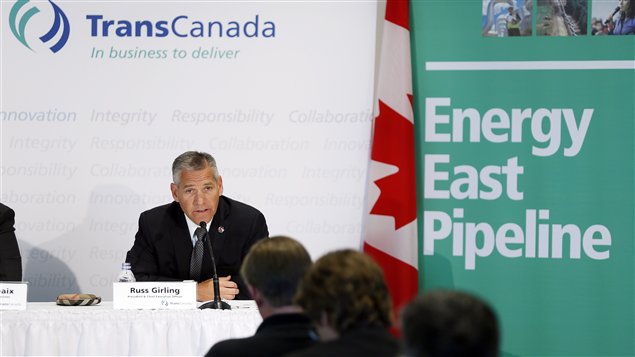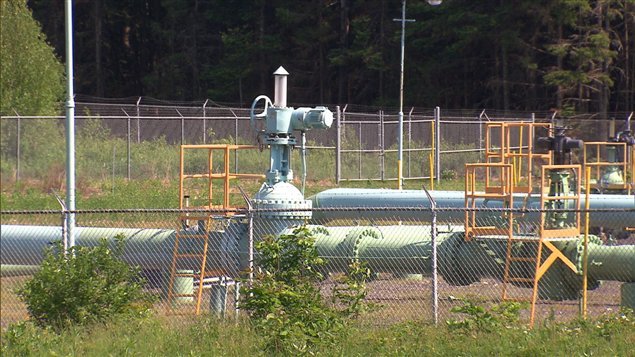TransCanada Corporation, based in Calgary, Alberta, announced today that it is moving ahead with plans to build a west-east pipeline across Canada. The proposed pipeline will move 1.1 million barrels of oil per day from Western Canada to refineries and export terminals in Eastern Canada. This would help offset the 700,000 barrels of oil a day currently imported into New Brunswick and Quebec.

“This is an historic opportunity to connect the oil resources of Western Canada to the consumers of Eastern Canada, creating jobs, tax revenue and energy security for all Canadians for decades to come”, according to a news release from Russ Girling, TransCanada’s President and chief executive officer, today.
TransCanada will convert 3,000 kilometres of natural gas pipeline on its existing Canadian Mainline route, to be able to carry crude oil. 1,400 kilometres of new pipeline would have to be built to carry the crude to Saint John, New Brunswick where it will arrive at the Canaport LNG Terminal.

strong advocate for the proposed
west-east TransCanada pipeline project
© CBC
The pipeline is great news for Saint John, New Brunswick a province that struggles economically. It has a deep-water port and a liquefied natural gas facility that would allow for export to other markets at higher world oil prices. And the Irving Oil refinery in Saint John, the largest in Canada, can process 300,000 barrels of oil a day.
Environmental groups are firmly opposed to the pipeline. The Council of Canadians said today, “This would threaten the Gulf of St. Lawrence and the Bay of Fundy, water bodies that must be protected as a public trust, not as a highway for oil exports.” The council is vowing to mount a national campaign against the west-pipeline, as it has the two other proposed pipelines going west through British Columbia.
Carmel Kilkenny spoke with Jeff Rubin, former Chief Econmist at the CIBC, and author most recently of ‘The End of Growth’:







For reasons beyond our control, and for an undetermined period of time, our comment section is now closed. However, our social networks remain open to your contributions.